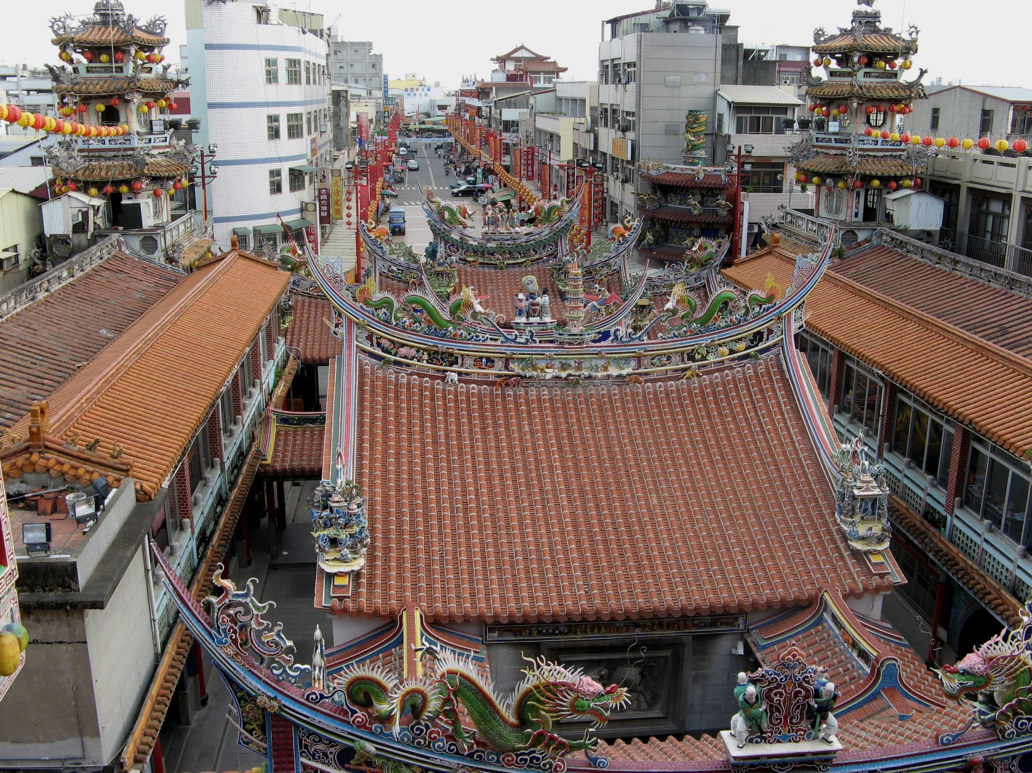A Resurgent Temple and Community Development: Roles of the Temple Manager, Local Elite, and Entrepreneurs
Duration: 1 hour 27 mins
Share this media item:
Embed this media item:
Embed this media item:
About this item

| Description: | 2017 Chuan Lyu Lecture in Taiwan Studies given on Wednesday, 17th May, 2017 by Prof. CHANG Hsun ( 張 珣 ), Institute of Ethnology, Academia Sinica, Taiwan, under the overall title "Religion and Social Transformations in Contemporary Taiwan". The annual Chuan Lyu Lectures in Taiwan Studies is generously funded by the Chuan Lyu Foundation. |
|---|
| Created: | 2017-06-15 16:39 |
|---|---|
| Collection: | Chuan Lyu Lectures |
| Publisher: | University of Cambridge |
| Copyright: | University of Cambridge |
| Language: | eng (English) |
| Distribution: |
World
|
| Keywords: | Taiwan; Ethnology; Chuan Lyu; Religion; Mazu; |
| Explicit content: | No |
| Aspect Ratio: | 16:9 |
| Screencast: | No |
| Bumper: | UCS Default |
| Trailer: | UCS Default |
| Abstract: | This paper will focus on a local community temple in southern Taiwan — Fengtian Temple (奉天宮) in Xingang (Hsinkang), Jiayi County (嘉義縣新港鄉), in southern Taiwan — where the author has engaged in fieldwork since 2010. The author has maintained contact with temple committee members and continues to observe the temple’s new transformations. Fengtian Temple re-emerged in 1988 as a destination for approximately one hundred thousand Mazu pilgrims from around the island each year. It successfully transformed itself into a temple associated with a strong sense of environmental protection and prosperous cultural industries. While bringing together local businesspeople, entrepreneurs and traditional intellectuals, the temple committee has worked together to further the goal of “comprehensive community development.” As a result, the temple has not only attracted and maintained an annual flow of pilgrims from all of Taiwan but also helped regenerate traditional industries. Many traditional artists and craftsmen have found successors, and new opportunities have emerged for young people to stay in their hometown. This temple has adapted to the many political, social and economic changes since martial law was lifted in 1987, something not all the temples in Taiwan have been able to do effectively. Most successful have been the Mazu temples that have been able to create similar connections with NGOs. The Fengtian Temple is a successful case that is studied and admired by many other temples, and is thus particularly worthy of research.
Prof. CHANG Hsun (張 珣) received her Ph.D in Cultural Anthropology from the University of California at Berkeley in 1993 and is currently a Research Fellow at the Institute of Ethnology at Academia Sinica, Taipei, Taiwan. She was the Deputy Director of the Institute of Ethnology, Academia Sinica (2011-2014), and served as the Chairman of the Taiwan Society of Anthropology and Ethnology (TSAE, 2012-2015). She is currently the Discipline Coordinator of Anthropology and Ethnic Studies, Ministry of Science and Technology (2015-2017). Her teaching and research interests include folk medicine and folk religion in Taiwan, religious revival in China, intangible cultural heritage in Taiwan and China. She has worked on cross Taiwan Strait pilgrimages since 2011, on religious transformation in Xiamen, and on inter-religious dialogue in the Chinese context with researchers in the Chinese Academy of Social Sciences in Beijing. Her publications include《疾病與文化: 臺灣民間醫療人類學 研究論集》 (Illness and Culture: Essays on Folk Medicine in Taiwan) (1994 second edition), 《文化媽祖:臺灣媽祖信仰研究論文集》 (Constructing Mazu: Selected papers on the Mazu Cult) (2003), 《海洋民俗與信仰 :媽祖與王爺》 (Maritime Folklore and Belief: Mazu and Wangye) (2010), “Between Religion and State: the Dajia pilgrimage in Taiwan”, Social Compass (2012). Edited volumes include Chinese Popular Religion: Linking Fieldwork and Theory (2013), Religion in Taiwan and China: Locality and Transmission (2017, co-edited with Benjamin Penny). |
|---|---|
Available Formats
| Format | Quality | Bitrate | Size | |||
|---|---|---|---|---|---|---|
| MPEG-4 Video | 1280x720 | 2.99 Mbits/sec | 1.91 GB | View | Download | |
| MPEG-4 Video | 640x360 | 1.95 Mbits/sec | 1.24 GB | View | Download | |
| WebM | 1280x720 | 2.91 Mbits/sec | 1.86 GB | View | Download | |
| WebM | 640x360 | 822.07 kbits/sec | 523.83 MB | View | Download | |
| iPod Video | 480x270 | 522.12 kbits/sec | 332.70 MB | View | Download | |
| MP3 | 44100 Hz | 251.68 kbits/sec | 160.37 MB | Listen | Download | |
| Auto * | (Allows browser to choose a format it supports) | |||||

